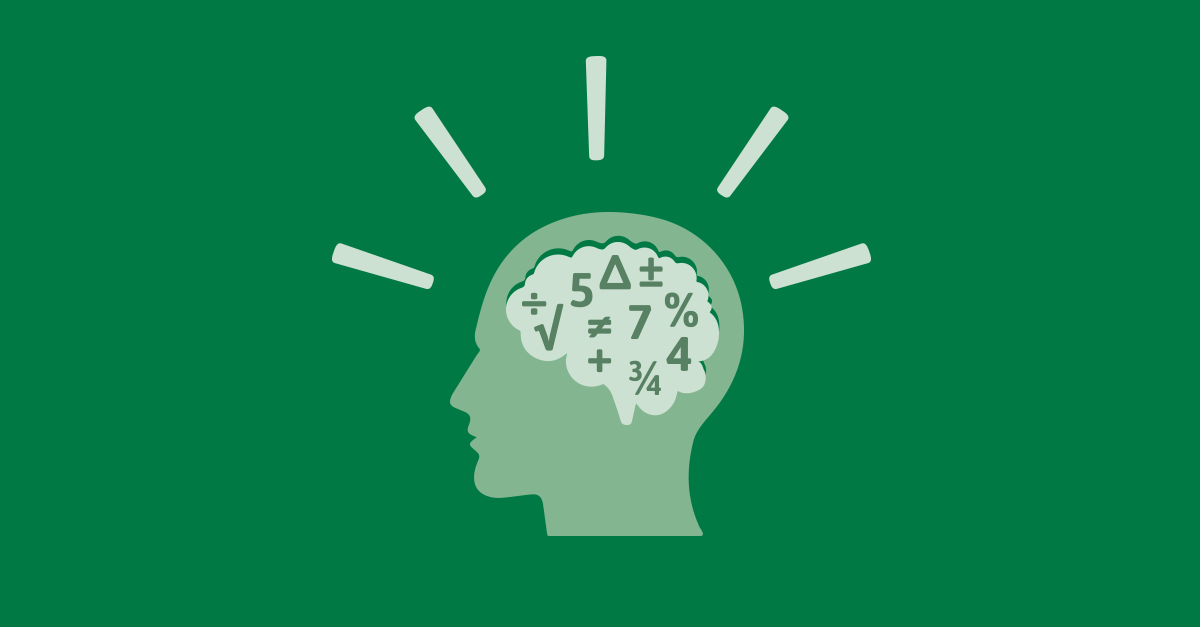Conceptual Understanding in Math

Think back to when you were choosing your math program.
As you conducted your research, you probably heard a math program refer to itself as a “conceptual” program or “conceptually-based.” You may have found yourself wondering what this meant and whether it was important for your particular child.
What is Conceptual Understanding?
Conceptual understanding refers to the notion that a student is not just taught how to do math but also the why behind it.
Students are encouraged to see the bigger framework that underlies all math topics and to think fluidly so that they are able to apply their math skills to a wide variety of problems. Rather than try to explain this idea philosophically, I’d like to use a real-life example to show why this is important.
Here is a recipe for a basic white sauce. Take a few minutes to memorize it.
1. In a small saucepan, melt 2 tablespoons butter over medium heat.
2. Whisk in 2 tablespoons flour, 1/8 teaspoon salt, and a dash of pepper. Stir until smooth.
3. Gradually whisk in 1 cup milk.
4. Bring to a boil; cook and stir for 2 minutes or until thickened.
Now look away from the computer and see if you can recall it from memory.
Perhaps you can remember it now, but suppose you had to make the white sauce several months from now and didn’t have the recipe on hand. If I had never made a white sauce before, I’d probably panic as I struggled frantically to dig the elusive recipe from the recesses of my gray matter.
However, if I had a conceptual understanding of white sauces, I would know that they all begin by making a roux of equal parts fat and flour (step 2 of the recipe). I would also know that the milk needs to be mixed in gradually, so I’d probably just continue to add milk until I had a consistency that looked right. While I might be nervous, I wouldn’t panic because I knew the basic principles that I could apply to this particular situation.
Conceptual Understanding in Math
The same is true of math. Let’s take a simple math fact like 5 × 3.
If I were a child that had learned this fact strictly by memory, I would be in the same position of having to make the white sauce without a recipe—panicked with no resources to help me find the answer.
However, if I had been given a conceptual foundation for 5 × 3, I would know that multiplication represents repeated addition and that this statement is the same as 5 added 3 times. I could then use strategies that I had learned for repeated addition, perhaps skip counting by 5s or making a rectangle with three 5-bars, until I arrived at the correct solution of 15. Eventually, as I worked more and more with 5 × 3, the solution would come automatically, and I would no longer need any supportive strategies.
If you were able to relate to these illustrations, you can probably see how developing conceptual understanding can lessen math anxiety and help students become more confident in their math skills. This often becomes evident when word problems are presented, such as the following:
DVDs are on sale for $5 each. You want to buy 3 of them. How much will you spend?
A student who understands and has mastered 5 × 3 can be coached to see how this fact applies to the problem. He can even apply the same fact to a more complex problem, like this:
The number 3,806,785 is multiplied by 3. In the product, what digit is in the ones place? Explain your answer.
A student might be nervous when first seeing this problem, but she could be encouraged to draw on her conceptual understanding of 5 × 3 = 15 and deduce that, since 15 has a 5 in the units place, the product of 3,806,785 and 3 will also have a 5 in the units place.
Developing conceptual understanding in math benefits our children in so many ways. Not only do they become more competent in their computational skills, but they also develop confidence in their ability to solve problems of increasing complexity. Students with strong conceptual understanding learn how to think and reason, and, yes, sometimes even come to enjoy math.
Have You Heard About AIM?
Accelerated Individualized Mastery (AIM) provides a new solution for struggling math students with gaps in their foundational math skills set. The AIM programs use proven Math-U-See strategies and manipulatives in combination with an accelerated approach to help students successfully master math concepts.